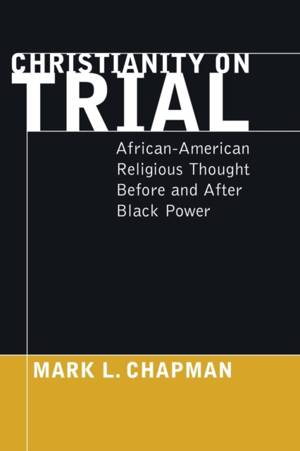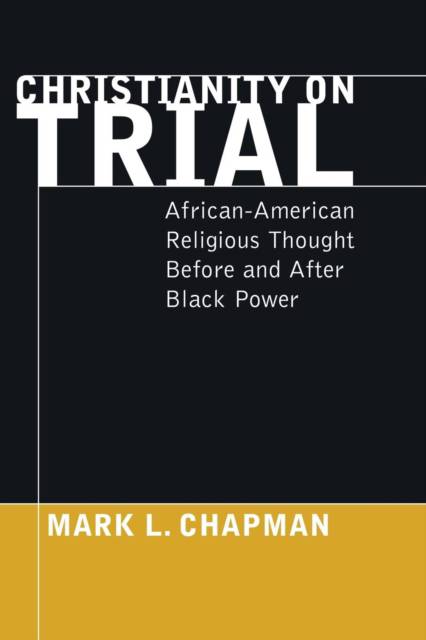
Bedankt voor het vertrouwen het afgelopen jaar! Om jou te bedanken bieden we GRATIS verzending (in België) aan op alles gedurende de hele maand januari.
- Afhalen na 1 uur in een winkel met voorraad
- In januari gratis thuislevering in België
- Ruim aanbod met 7 miljoen producten
Bedankt voor het vertrouwen het afgelopen jaar! Om jou te bedanken bieden we GRATIS verzending (in België) aan op alles gedurende de hele maand januari.
- Afhalen na 1 uur in een winkel met voorraad
- In januari gratis thuislevering in België
- Ruim aanbod met 7 miljoen producten
Zoeken
Omschrijving
Since slavery times African-American religious thinkers have struggled to answer this question: Is Christianity a source of liberation or a source of oppression? In a study that reviews representative thinkers over the last fifty years, Mark Chapman reviews the variety of ways that African-Americans have addressed this problem and how it has informed their work and lives. Beginning with Benjamin Mays, the leading Negro theologian of the post-World War II period, Chapman explores the critical implications of this question right up to the present day. The pivotal turning point in this period is the emergence of the Black Power movement in the 1960s. Sparked in part by the challenge of the Black Muslims, for whom Christianity was simply the white man's religion, inherently racist and oppressive, the era of Black Power saw the rise of militant Black theologies as well. After analyzing the work of the Muslim Elijah Muhammad, Chapman turns to the pioneering work of Black theologians Albert Cleage and James H. Cone. Chapman demonstrates the differences but also uncovers surprising lines of continuity between the older Negro theologians and the later Black theologians, particularly in their efforts to uncover the truly liberative potential of Christianity. 'Christianity on Trial' concludes by exploring the recent emergence of womanist theology. As articulated by Delores S. Williams and other African-American women, womanist theology challenges not only the patriarchal aspects of historical Christianity, but the same limitations in previous Black theologies. A welcome addition to the literature on African-American religious thought. I strongly recommend it. -- James H. Cone, Union Theological Seminary A much-needed and enlightening book! Chapman is not afraid to expose weaknesses and oppressive elements in Christianity. In the process, however, he shows how African American religious thinkers, early and late, have been its most prophetic and productive critics in their continuous search for the God who liberates both women and men. -- Gayraud S. Wilmore, author of 'Black Religion and Black Radicalism' This is a thorough and insightful analysis of the ways in which African-American Christians have 'tested' their faith. More importantly, it is an affirmation of that faith under the most trying of circumstances. -- James H. Evans, Jr., Colgate Rochester Divinity School Mark L. Chapman is Associate Professor of African and African American Studies and Chair of the Department at Fordham University.
Specificaties
Betrokkenen
- Auteur(s):
- Uitgeverij:
Inhoud
- Aantal bladzijden:
- 224
- Taal:
- Engels
Eigenschappen
- Productcode (EAN):
- 9781597525565
- Verschijningsdatum:
- 2/02/2006
- Uitvoering:
- Paperback
- Formaat:
- Trade paperback (VS)
- Afmetingen:
- 154 mm x 228 mm
- Gewicht:
- 326 g

Alleen bij Standaard Boekhandel
+ 83 punten op je klantenkaart van Standaard Boekhandel
Beoordelingen
We publiceren alleen reviews die voldoen aan de voorwaarden voor reviews. Bekijk onze voorwaarden voor reviews.









